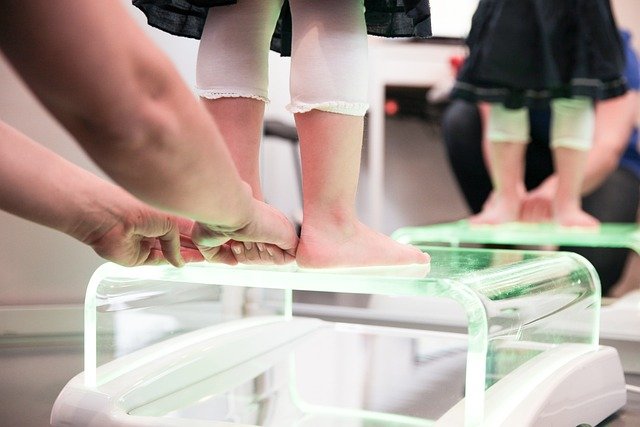Understanding Kidney Disease: Key Signs That Indicate a Potential Problem
Kidney disease is a serious condition that impacts millions of people worldwide. Despite its name, kidney disease does not always mean the kidneys have completely failed. Instead, it often indicates that the kidneys are not filtering waste and fluids as effectively as they should. Recognizing the early signs of kidney disease can be crucial for timely intervention, helping to slow progression and prevent serious complications. Understanding these warning indicators plays a key role in protecting overall health.

What is Fluid Retention and How Does it Relate to Kidney Disease?
Fluid retention, also known as edema, is a common sign of kidney disease. When the kidneys are not functioning properly, they may struggle to remove excess fluid from the body. This can lead to swelling in various parts of the body, particularly in the hands, feet, ankles, and face. Fluid retention occurs because the kidneys are unable to maintain the proper balance of fluids and electrolytes in the body.
In kidney disease, fluid retention can manifest in several ways. Patients may notice puffiness around their eyes, especially in the morning. They might also experience swollen ankles or feet that become more pronounced as the day progresses. In some cases, people may observe that their shoes feel tighter or that rings on their fingers become difficult to remove.
How Does Fatigue and Weakness Appear in Kidney Disease Patients?
Fatigue and weakness are common symptoms experienced by individuals with kidney disease. The kidneys play a crucial role in producing erythropoietin, a hormone that stimulates red blood cell production. When the kidneys are impaired, they may not produce enough of this hormone, leading to anemia – a condition characterized by a lack of healthy red blood cells to carry oxygen throughout the body.
As a result, patients with kidney disease often feel tired and weak, even after getting adequate rest. They may experience a lack of energy for daily activities, difficulty concentrating, and a general sense of being unwell. This fatigue can be persistent and may worsen as kidney function declines. It’s important to note that while fatigue is a common symptom, it can also be caused by other health conditions, so proper medical evaluation is essential.
Why is Monitoring Swelling in Legs and Feet Important for Kidney Health?
Monitoring swelling in the legs and feet is crucial for kidney health because it can be an early indicator of kidney dysfunction. When the kidneys are not working efficiently, they may struggle to remove excess fluid from the body, leading to fluid accumulation in the lower extremities. This swelling, known as peripheral edema, often starts in the feet and ankles and may progress up the legs.
Regular monitoring of leg and foot swelling can help detect kidney problems early. Patients should be aware of any unusual puffiness or if their shoes feel tighter than usual. It’s also important to note that swelling may be more noticeable after long periods of sitting or standing. While swelling can be caused by other conditions, such as heart problems or venous insufficiency, its presence warrants medical attention to determine the underlying cause and appropriate treatment.
What Role Do Sudden Weight Changes Play in Identifying Kidney Disease?
Sudden weight changes can be a significant indicator of kidney disease. When the kidneys are not functioning properly, they may struggle to remove excess fluid from the body, leading to fluid retention. This can result in rapid weight gain, often noticeable over a short period. Conversely, as kidney disease progresses, it can lead to a loss of appetite and decreased nutrient absorption, potentially causing unintended weight loss.
Monitoring weight fluctuations is important for several reasons. Rapid weight gain, especially when accompanied by swelling, may indicate fluid retention due to declining kidney function. On the other hand, unexplained weight loss could signal malnutrition or the progression of kidney disease. It’s crucial to note that weight changes can be caused by various factors, but when they occur suddenly or are accompanied by other symptoms, they should be evaluated by a healthcare professional.
Early Detection and Treatment Options for Kidney Disease
Early detection of kidney disease is crucial for effective management and treatment. Regular check-ups and blood tests can help identify kidney problems before symptoms become apparent. Key tests include measuring blood creatinine levels and estimating glomerular filtration rate (GFR), which indicate how well the kidneys are filtering waste.
Treatment options for kidney disease vary depending on the underlying cause and severity of the condition. They may include:
-
Lifestyle changes: Adopting a kidney-friendly diet, regular exercise, and quitting smoking.
-
Medication management: Controlling blood pressure, managing diabetes, and addressing other contributing factors.
-
Treating underlying conditions: Addressing diseases that may be causing kidney damage, such as diabetes or high blood pressure.
-
Dialysis: For advanced kidney disease, dialysis may be necessary to filter waste from the blood.
-
Kidney transplant: In cases of end-stage renal disease, a kidney transplant might be considered.
Early intervention can significantly slow the progression of kidney disease and improve quality of life. It’s essential for individuals experiencing any signs or symptoms of kidney problems to consult with a healthcare provider promptly for proper evaluation and treatment.
In conclusion, understanding the key signs of kidney disease is crucial for early detection and effective management. By recognizing symptoms such as fluid retention, fatigue, swelling in the legs and feet, and sudden weight changes, individuals can seek timely medical attention. Regular check-ups and a proactive approach to kidney health can make a significant difference in managing this serious condition and maintaining overall well-being.
This article is for informational purposes only and should not be considered medical advice. Please consult a qualified healthcare professional for personalized guidance and treatment.




